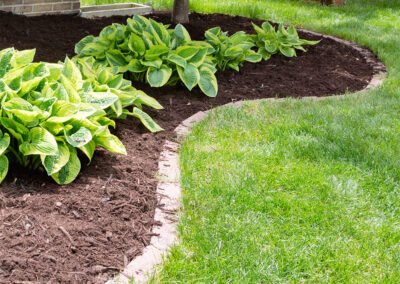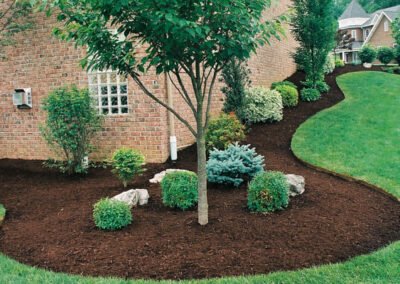MULCHING
Mulching is a common practice in landscaping and gardening that involves applying an organic or inorganic material to the soil surface around plants. This material, known as mulch, serves several purposes and benefits for the garden. Some of the functions and benefits of mulching include:
Moisture retention: Mulch helps retain moisture in the soil by reducing evaporation, ensuring plants have access to a constant water source, especially in warm and dry climates.
Weed control
By covering the soil surface, mulch prevents weed seeds from germinating by blocking sunlight, reducing weed competition, and facilitating garden maintenance.
Soil temperature regulation
Mulch acts as an insulator, helping maintain a more constant soil temperature, which is beneficial for plant roots, especially during extreme temperature changes.
Root protection
Mulch provides a protective layer around plant roots, shielding them from soil erosion, mechanical damage, and temperature fluctuations.
Soil structure improvement
Over time, organic mulch decomposes and is incorporated into the soil, enhancing its structure, increasing microbial activity, and enriching its nutrient content.
Moisture retention
Mulch helps retain moisture in the soil by reducing evaporation, ensuring plants have access to a constant water source, especially in warm and dry climates.







